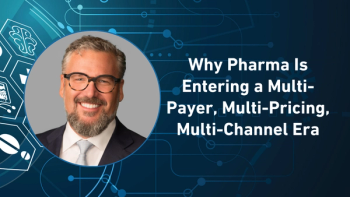
Does Food Insecurity Impact Adherence to Antihypertensive Medications?
An investigation evaluates whether SNAP benefits can also influence hypertension patients’ lack of medication adherence.
In the United States, hypertension—also known as high blood pressure—affects nearly half of adults, accounting for approximately 121.5 people (47.5% of the total population). This has resulted in a burden on the healthcare system, with healthcare costs ranging from $131-$198 billion.1 If not properly treated with either medication or lifestyle changes, such as a change and diet and exercise, the condition can become a risk factor for cardiovascular diseases.
Being that medication nonadherence transcends coverage areas, there is a high rate of prevalence for antihypertensive drugs as well. This is attributed to a multitude of factors including food insecurity, which goes hand-in-hand, because patients must oftentimes decide whether to put food on the table or spend their funds on prescription medications.
The Supplemental Nutrition Assistance Program (SNAP) can step in by providing vouchers for food purchases, reducing food insecurities in the process. In a cohort study published in JAMA Network Open,1 investigators sought to determine the association between receiving SNAP benefits and nonadherence to antihypertensive medications, while also examining whether the aforementioned food insecurity plays a role.
The study used a linked database for antihypertensive medication users from the Medical Expenditure Panel Survey (MEPS)–National Health Interview Survey (NHIS) dataset for 2016 to 2017; these surveys consist of verified self-reported prescribed medication use and healthcare access measures, and US households that gather health behavior, health information, and sociodemographic data, including receipt of SNAP benefits, respectively. Via standard questionnaires, the investigators compiled food insecurity status and receipt of SNAP benefits over the past 30 days.
Based on data providing the frequency and quantity of antihypertensive medication that was distributed, investigators were able to calculate measuring refill adherence (MRA) for antihypertensive medication by dividing the sum of days’ supply with antihypertensive medications by the numbers of days in the study observation period (in this case, 365), and then multiplying that quotient by 100%.
From there, the average number of MRAs per antihypertensive medication therapeutic class was calculated for patients who took multiple antihypertensive medications. If a MRA for any patient was below 80%, they were considered nonadherent to those antihypertensive medications.
As for assessing food security status, the 10-item US Department of Agriculture (USDA) Food Security Survey was used, featuring questions such as how often in the past 30 days the food purchased didn’t last and the person/household didn’t have money to get more. Responses were then scored using a 0-10 range and totaled; scores of 1 or more were deemed “food insecure,” and respondents who answered negatively were “food secure.”
Out of the total 6,692 antihypertensive medication users, the average age was 63, with 3,632 (51.3%) being women and 3,060 (45.7%) being men. When it came to race, 1,602 individuals (15.2%) were Black, 1,175 (9.8%) were Hispanic, 3,711 (71.6%) were White, and 204 (3.4%) were of another race or ethnicity. Overall, there were 1,203 participants (12.8%) who had received SNAP benefits during that timeframe.
There were 1,338 people (14.8%) who reported experiencing food insecurity in the past month before being surveyed, but almost half of the SNAP recipients (540 [42.9%]) reported being food insecure compared with non-recipients (798 [10.8%]).
While SNAP was not associated with nonadherence when it came to antihypertensive medications in the general population, it was however associated with a 13.6–percentage point reduction in nonadherence (PATE, −13.6 [95% CI, −25.0 to −2.3]) among the food-insecure subgroup but not among their food-secure participants.
As a result, the study authors concluded that “patients with hypertension who receive SNAP benefits may be less likely to become medication nonadherent, especially if they are experiencing food insecurity. We therefore recommend further examination of the role of SNAP as a potential intervention for preventing nonadherence to antihypertensive medications through prospectively designed interventional studies or natural experiment study designs.”
Reference
1. Islam MM, Oyarzun-Gonzalez X, Bose-Brill S, Donneyong MM. Supplemental Nutrition Assistance Program and Adherence to Antihypertensive Medications. JAMA Netw Open. 2024;7(2):e2356619. doi:
Newsletter
Stay ahead in the life sciences industry with Pharmaceutical Commerce, the latest news, trends, and strategies in drug distribution, commercialization, and market access.



